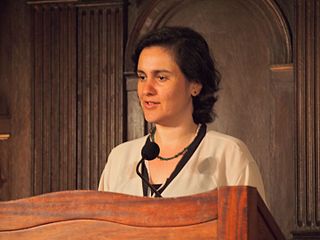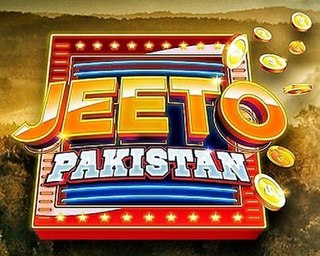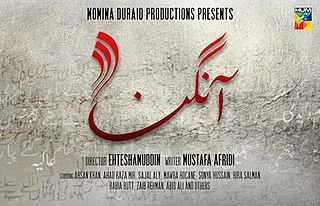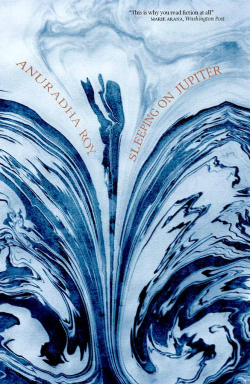Pakistani literature is a distinct literature that gradually came to be defined after Pakistan gained nationhood status in 1947, emerging out of literary traditions of the South Asia. The shared tradition of Urdu literature and English literature of British India was inherited by the new state. Over a big time of period a body of literature unique to Pakistan has emerged in nearly all major Pakistani languages, including Balochi, English, Pushto, Punjabi, Seraiki, Sindhi, and Urdu,.

Kamila Shamsie FRSL is a Pakistani and British writer and novelist who is best known for her award-winning novel Home Fire (2017). Named on Granta magazine's list of 20 best young British writers, Shamsie has been described by The New Indian Express as "a novelist to reckon with and to look forward to." She also writes for publications including The Guardian, New Statesman, Index on Censorship and Prospect, and broadcasts on radio.

Emma Donoghue is an Irish-Canadian playwright, literary historian, novelist, and screenwriter. Her 2010 novel Room was a finalist for the Booker Prize and an international best-seller. Donoghue's 1995 novel Hood won the Stonewall Book Award and Slammerkin (2000) won the Ferro-Grumley Award for Lesbian Fiction. She is a 2011 recipient of the Alex Awards. Room was adapted by Donoghue into a film of the same name. For this, she was nominated for the Academy Award for Best Adapted Screenplay.
Ahmed Ali was a Pakistani novelist, poet, critic, translator, diplomat and scholar. A pioneer of the modern Urdu short story, his works include the short story collections: Angarey (Embers), 1932; Hamari Gali, 1940; Qaid Khana, 1942; and Maut Se Pehle, 1945. His other writings include Twilight in Delhi (1940), his first novel in the English language.

Qurratulain Hyder was an Indian Urdu novelist and short story writer, an academic, and a journalist. One of the most outstanding and influential literary names in Urdu literature, she is best known for her magnum opus, Aag Ka Darya, a novel first published in Urdu in 1959, from Lahore, Pakistan, that stretches from the fourth century BC to post partition of India.

Malika Pukhraj was a highly popular Ghazal and folk singer of Pakistan. She was generally known as "Malika", meaning "The Queen", publicly. She was extremely popular for her rendition of Hafeez Jalandhri's nazm song, Abhi tau main jawan hoon, which is enjoyed by millions not only in Pakistan, but also in India. Others among her popular numbers in Urdu language were Lo phir basant aaii, Quli Qutub's Piya baaj piyala piya jaey na, and Faiz Ahmed Faiz's Mere qatil mere dildar mere paas raho.
The publishing industry in Pakistan is hampered both by a low literacy rate (65%).

Nadeem Aslam FRSL is a British Pakistani novelist. His debut novel, Season of the Rainbirds, won the Betty Trask and the Author's Club First Novel Award. His critically acclaimed second novel Maps for Lost Lovers won Encore Award and Kiriyama Prize; it was shortlisted for International Dublin Literary Award, among others. Colm Tóibín described him as "one of the most exciting and serious British novelists writing now".

Gulzar is an Indian Urdu poet, lyricist, author, screenwriter, and film director known for his works in Hindi cinema. He is regarded as one of greatest Urdu poets of this era. He started his career with music director S.D. Burman as a lyricist in the 1963 film Bandini and worked with many music directors including R. D. Burman, Salil Chowdhury, Vishal Bhardwaj and A. R. Rahman. Gulzar also writes poetry, dialogues and scripts. He directed films such as Aandhi and Mausam during the 1970s and the TV series Mirza Ghalib in the 1980s. He also directed Kirdaar in 1993.
Pakistani English literature refers to English literature that has been developed and evolved in Pakistan, as well as by members of the Pakistani diaspora who write in the English language. English is one of the official languages of Pakistan and has a history going back to the British colonial rule in South Asia ; the national dialect spoken in the country is known as Pakistani English. Today, it occupies an important and integral part in modern Pakistani literature. Dr. Alamgir Hashmi introduced the term "Pakistani Literature [originally written] in English" with his "Preface" to his pioneering book Pakistani Literature: The Contemporary English Writers as well as through his other scholarly work and the seminars and courses taught by him in many universities since 1970's. It was established as an academic discipline in the world following his lead and further work by other scholars, and it is now a widely popular field of study.

Hajra Masroor was a Pakistani writer. Masroor established herself with her short fiction stories, known as afsana in Urdu literature. Her elder sister, Khadija Mastoor was also an accomplished short story writer and novelist.
Annie Zaidi is an English-language writer from India. Her novel, Prelude To A Riot, won the Tata Literature Live! Awards for Book of the Year 2020. In 2019, she won The Nine Dots Prize for her work Bread, Cement, Cactus and in 2018 she won The Hindu Playwright Award for her play, Untitled-1. Her non-fiction debut, a collection of essays, Known Turf: Bantering with Bandits and Other True Tales, was short-listed for the Vodafone Crossword Book Award in 2010.

Jeeto Pakistan is a Pakistani game show, hosted by actor Fahad Mustafa on ARY Digital. The show was launched on 18 May 2014. It has been called the "biggest game show" of Pakistan. Jeeto Pakistan's participants are selected randomly from a studio audience, who require passes to attend the show.

The Wish Maker is the first novel by Pakistani author Ali Sethi. Published in 2009 by Riverhead Books, it tells the story of Zaki Shirazi, a young boy from United States who returned to Lahore, Pakistan after finishing his studies to celebrate the wedding of his childhood friend Samar Api and observe a completely new Pakistan. The story is set against the backdrop of tumultuous events, from the Zia-ul-Haq reign to Zulfiqar Bhutto's execution and Benazir Bhutto elections, it also dictates United States help to Afghan mujahideen during the Soviet military intervention in Afghanistan.

Aangan is a Pakistani period drama series based on the award-winning novel of the same name by Khadija Mastoor and originally broadcast on Hum TV. Apart from the initial few episodes, the story set in British India, is narrated by Aaliya who is an ambitious girl and witnesses the stories of relations affected at the time of partition of the Indian Subcontinent, presenting the trials and tribulations as her own family was divided.

Uzma Jalaluddin is a Canadian writer and teacher, known for her 2018 debut novel Ayesha At Last.

Sajidah "S.K." Ali is an Indian-Canadian author of children's books, best known for her Asian/Pacific American Award-winning debut young adult novel Saints & Misfits, about Janna Yousuf, an Indian-American hijabi who grapples with getting sexually assaulted by a friend's cousin from her local mosque.

Sleeping on Jupiter is a novel by Anuradha Roy. It is her third novel and was published by Hachette India on 15 April 2015. It was longlisted for the 2015 Man Booker Prize and shortlisted for the 2015 The Hindu Literary Prize. It won the 2016 DSC Prize for South Asian Literature.
Umera Ahmed is a Pakistani writer, author and screenwriter. She is best known for her novels and plays Shehr-e-Zaat, Pir-e-Kamil, Zindagi Gulzar Hai, Alif, Durr-e-Shehwar, Daam, Man-o-Salwa, Qaid-e-Tanhai, Digest Writer, Maat, Kankar, Meri Zaat Zarra-e-Benishan, Doraha and Hum Kahan Ke Sachay Thay. Umera Ahmed is one of the most widely-read and popular Urdu fiction novelists and screenplay writers of this era.













